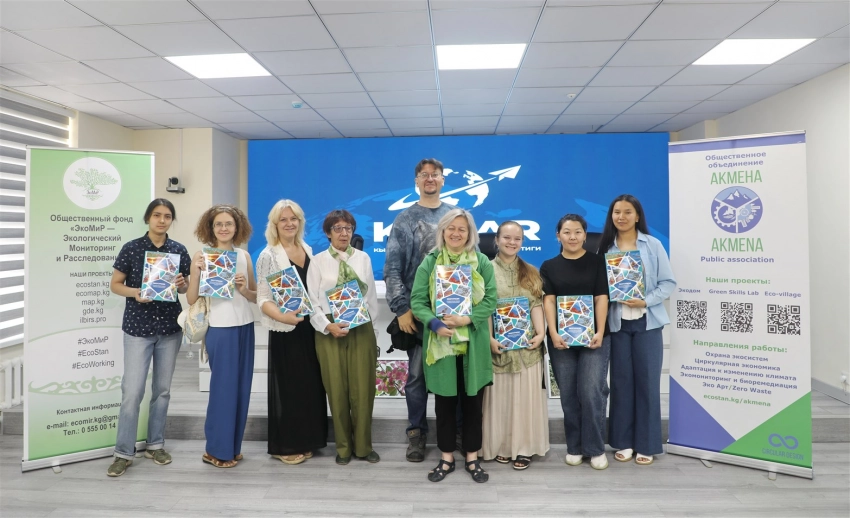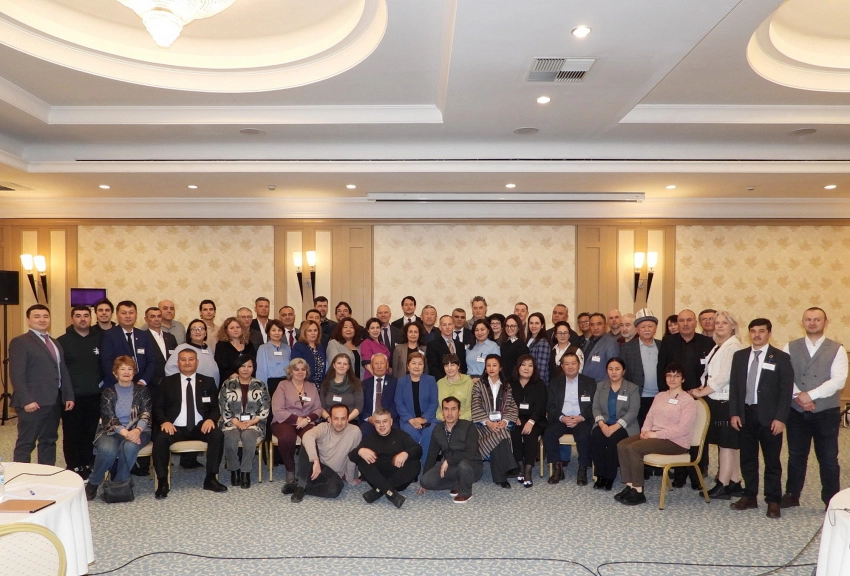From Agreements to Actions: Restoring Biodiversity

On Monday, May 22nd, a roundtable discussion titled "From Agreements to Actions: Restoring Biodiversity" took place at the A. Osmonov National Library, dedicated to the International Day for Biodiversity and the United Nations Decade on Ecosystem Restoration. The event was organized by the Environmental Network "Zoi," the Bishkek Environmental Fund "EcoMir," and the Osh Information Outreach Center. More than 50 participants attended the roundtable, including representatives from government agencies, scientists from the Academy of Sciences, and environmental NGOs in Kyrgyzstan.

The United Nations Convention on Biological Diversity is an international legal document with three main objectives: the conservation of biodiversity, its sustainable use, and the fair and equitable sharing of benefits arising from the use of genetic resources. In Resolution 55/201 of December 20, 2000, the General Assembly decided to observe the International Day for Biological Diversity on May 22nd, the day the Convention's text was adopted, to deepen understanding and raise awareness of biodiversity issues.

After the welcoming remarks by the Deputy Minister of the Ministry of Natural Resources, Ecology, and Technical Regulation of the Kyrgyz Republic, Kubat Kasayinov, the attendees were presented with topics related to International Day for Biodiversity, global goals for 2030-2050, the Kunming-Montreal Framework, the United Nations Decade on Ecosystem Restoration, and the global "five-year" action plan for mountain region development initiated by the Kyrgyz Republic.
The national strategy, goals, measures, and priorities for conserving the country's living nature were also presented, along with the contributions of the government, local, and international partners to nature conservation in Kyrgyzstan.

Scientists from the Academy of Sciences of the Kyrgyz Republic discussed the results of research on the status of rare and endangered animal and plant species and ecosystems. They explained how scientific information can be used to make optimal decisions and inform the public.
Mikhail Yakovlev, the CEPF (Critical Ecosystem Partnership Fund) coordinator in Kyrgyzstan, provided an overview of community, scientific, and NGO involvement in nature conservation and key biodiversity areas.
Next, Gamal Soronkulov, the regional director of EcoMir, introduced an innovative tool to the attendees—an online eco-map of Kyrgyzstan. He showcased its applications and explained how it is essential not only for preserving the biological diversity of Kyrgyzstan but also for promoting ecotourism. The resource offers free access to a unique photo bank of the country's natural beauty.

Victor Novikov, project manager of "Zoi," reminded the audience about key biodiversity areas (KBAs), where to apply the concept, and why efforts at multiple levels and coordination are crucial.
For reference, Key Biodiversity Areas (KBAs) are territories of critical importance for conserving threatened species or ecosystems. KBAs provide a wealth of ecosystem services essential for sustainable development in the entire region, and they encompass unique landscapes, flora, fauna, including endangered species.

Representatives from the scientific community and civil society provided examples of specific measures and achievements in nature conservation in Kyrgyzstan with the support of CEPF and others. These included the preservation of unique and vulnerable species, KBAs, ecological corridors, and ecosystems, support for protected areas, and public awareness efforts. They also discussed future steps in biodiversity conservation, emphasizing the importance of collaboration among government agencies, local authorities, and the civil sector.
The outcome of the roundtable was a discussion of possible steps in the Kyrgyz Republic towards establishing a long-term vision and goals for biodiversity conservation for 2030-2050.

For reference, the Environmental Network "Zoi" (Zoi) assists countries and non-governmental organizations in improving the accessibility and quality of environmental information while supporting measures within the United Nations Decade on Ecosystem Restoration.
A full photo report can be found on the website: www.photo.kg











